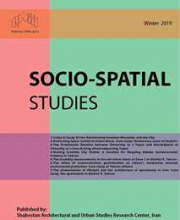
مقالات
حوزههای تخصصی:
The increasing integration of Information and Communication Technologies (ICT) in children's lives necessitates a continuous emphasis on media literacy. As digital environments become intrinsic to education, entertainment, and social interaction, children are exposed to vast amounts of content, unfiltered, complex, and often harmful. This paper explores the imperative role of media literacy in equipping children with critical thinking skills to experience the digital landscape responsibly. By analyzing contemporary challenges, including misinformation, cyberbullying, and digital addiction, this study highlights how media literacy fosters cognitive resilience and ethical engagement online. Furthermore, the paper emphasizes the role of educators, parents, and policymakers in furthering a collaborative approach to digital education. Media literacy is positioned not as a singular skill but as an evolving competency, integral to ensuring children's empowerment and safety. The findings show that there is an urgent need for structured media literacy programs, tailored to the cognitive and emotional development of children, to mitigate risks and harness the opportunities presented by ICT. We also recommend that children’s use of ICT should be kept as minimal as possible.
Doctors for AI? A systematic review
حوزههای تخصصی:
Artificial intelligence is transforming all aspects of human life and healthcare industry is one of the areas of change due to introduction of AI. This systematic review examines the perspectives of doctors on the use of AI in clinical settings, synthesizing findings from peer-reviewed articles to provide a comprehensive understanding of their attitudes, experiences, and concerns. Drawing on studies conducted across diverse healthcare environments, the review identifies prevailing themes, including the perceived benefits of AI in improving diagnostic accuracy, streamlining workflows, and personalizing patient care. However, it also highlights persistent challenges, such as ethical dilemmas surrounding accountability and autonomy, concerns about data privacy, and the potential for algorithmic biases. The findings reveal that while many physicians are optimistic about the transformative potential of AI, significant gaps remain in education and infrastructure that hinder effective adoption. Doctors frequently underscore the need for explainable AI systems, robust regulatory frameworks, and targeted training programs to address these challenges. This review contributes to the growing body of literature on AI in healthcare by offering insights into how medical professionals perceive and engage with this rapidly evolving technology.
Space and care in cancer; A meta-analytic explanation of the role of spatial environments in cancer experience and treatment
حوزههای تخصصی:
Cancer has traditionally been conceptualized as a solely somatic disease; however, emerging evidence underscores the extent to which its treatment and lived experience are profoundly mediated by spatial factors. This study undertakes a qualitative meta-synthesis of interdisciplinary literature to critically examine how diverse spatial environments—architectural, relational, ecological, and symbolic—constitute integral dimensions of cancer care. Drawing on empirical and theoretical contributions from psycho-oncology, environmental psychology, nursing science, and therapeutic design, the analysis advances the argument that space operates not as a passive setting but as an active co-constituent shaping physiological, psychological, and existential outcomes. The synthesis reveals that therapeutic architecture, relational closeness, ecological embeddedness, and symbolic spatial cues significantly affect patient well-being, caregiver capacity, and the efficacy of care delivery systems. These findings challenge the prevailing biomedical paradigms that marginalize spatial determinants and instead support the adoption of a relational-material framework for understanding and enhancing care. Spatial dimensions of healing—encompassing safety, familiarity, identity reinforcement, and continuity—are shown to promote resilience and agency, particularly within vulnerable settings such as home-based palliative care and survivorship programs. The paper concludes by emphasizing the imperative for spatial literacy within oncology education, practice, and policy. It calls for a reconceptualization of care environments that bridges the gap between empirical insights and clinical implementation, thereby advancing a model of cancer care that is ethically grounded and spatially responsive.
Reimagining MBA education in the age of artificial intelligence; A meta-synthesis
حوزههای تخصصی:
The integration of artificial intelligence into Master of Business Administration (MBA) education is reshaping the foundations of management learning worldwide. This study conducts a qualitative meta-synthesis of 17 peer-reviewed sources published between 2001 and 2021 to examine how AI technologies—ranging from generative models and adaptive learning systems to predictive analytics and federated learning—are influencing MBA curricula, pedagogy, student engagement, and institutional strategies. Findings reveal that AI holds transformative potential for enhancing personalization, academic performance, and curriculum relevance, while also addressing enrollment challenges and labor market misalignments. However, integration remains uneven and fraught with ethical, infrastructural, and pedagogical challenges, including concerns over academic integrity, faculty preparedness, and digital equity. Conceptual frameworks such as the Technology Acceptance Model (TAM), paradox theory, and interpretive structural modeling elucidate the enabling and constraining factors surrounding AI adoption. The study highlights the urgent need for business schools to pursue a holistic and ethically grounded AI strategy that balances technological innovation with humanistic leadership development. Ultimately, AI is not only redefining how MBAs are delivered, but also reorienting their purpose toward preparing future-ready leaders for complex, data-driven environments. The paper concludes with a call for adaptive, inclusive, and ethically sound educational reforms in MBA programs worldwide.
Mapping the Landscape of AI Literacy: An Integrative Review
حوزههای تخصصی:
This study presents an integrative review of scholarly literature published between 2016 and 2022 to synthesize how AI literacy has been conceptualized, taught, and measured. Drawing on over 40 empirical and theoretical sources, the review maps trends across educational levels—from primary to higher and adult education—and user groups, including students, teachers, professionals, and the general public. Key findings reveal significant diversity in pedagogical strategies, ranging from project-based learning and digital storytelling to flipped classrooms and professional development programs. Conceptualizations of AI literacy vary widely, encompassing technical, ethical, civic, and empowerment-oriented dimensions. Meanwhile, the field continues to face challenges related to definitional ambiguity, limited standardization of assessment tools, and inconsistent integration of ethical and socio-cultural considerations. The review emphasizes the need for convergence around shared frameworks, scalable pedagogies, and cross-contextual evaluation tools. It concludes by identifying future directions for inclusive, empirically grounded, and ethically aware AI literacy initiatives aimed at fostering reflective and informed engagement with AI systems.